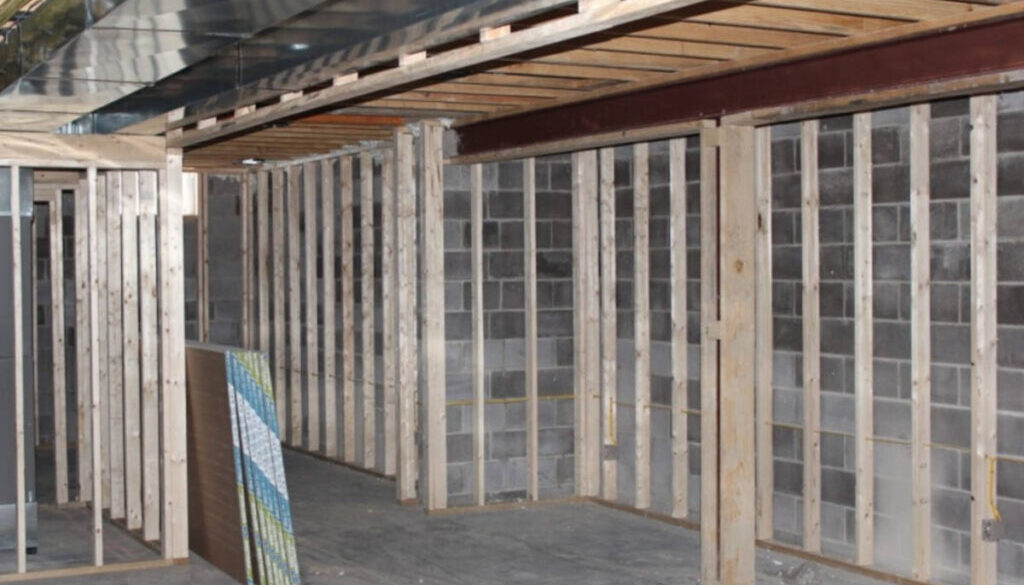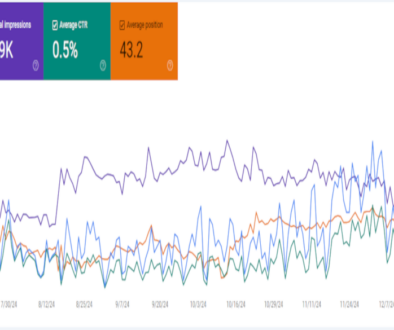Unearth Hidden Profits: SEO For Basement Remodelers
Are you a basement remodeler struggling to attract new clients online? SEO for basement remodelers can boost your website’s visibility in search results. This article will share practical tips to improve your online presence and attract more customers.
Ready to uncover SEO secrets that can grow your business?
Key Takeaways
- Local SEO is crucial for basement remodelers to attract nearby customers, including optimizing Google My Business listings and building local citations.
- Creating relevant, informative content with targeted keywords helps improve search rankings and engage potential clients looking for basement renovation services.
- On-page optimization techniques like using descriptive title tags, header tags, and SEO-friendly URLs can boost a remodeler’s website visibility in search results.
- Tracking SEO success involves monitoring rankings, web traffic, and conversion rates using tools like Google Analytics and Search Console.
- SEO results typically take 3-6 months for initial improvements and 6-12 months or more for significant long-term gains in search visibility and lead generation.
Understanding SEO for Basement Remodelers
SEO helps basement remodelers get found online. It boosts website visibility and attracts more potential customers.
Importance of a Mobile-Friendly, Fast, and Secure Site
A mobile-friendly, fast, and secure website is crucial for basement remodelers. Google prioritizes mobile-first indexing, meaning it uses the mobile version of your site for ranking.
A responsive design ensures your content looks great on all devices, boosting user experience and search rankings. Fast-loading pages keep visitors engaged and reduce bounce rates.
Google’s PageSpeed Insights can help identify areas for improvement in site speed.
Security is non-negotiable in today’s digital landscape. An SSL certificate encrypts data between your site and visitors, protecting sensitive information. Google gives a slight ranking boost to HTTPS sites.
A secure site builds trust with potential clients, increasing the chances they’ll contact you for remodeling services. Regular backups and updates to your content management system help prevent security breaches and maintain site performance.
Key Strategies for Keyword Optimization
Keyword optimization forms the backbone of effective SEO for basement remodelers. Smart keyword selection helps your website rank higher in search results. Focus on long-tail keywords that match common customer queries about basement renovations.
These specific phrases often have less competition and higher conversion rates.
Incorporate target keywords naturally into your website content, meta tags, and image alt text. Use tools like Google Keyword Planner to find relevant terms with good search volume.
Optimize for local searches by including your city or service area in keywords. This strategy boosts visibility for nearby customers seeking basement remodeling services.
Benefits of Local SEO for Basement Remodelers
Local SEO boosts visibility for basement remodelers in their target areas. It helps businesses appear in “near me” searches and Google Maps results. This increased online presence can lead to more website visits, phone calls, and foot traffic from potential customers.
Google My Business optimization is a key part of local SEO. Accurate business information, customer reviews, and regular posts improve local search rankings. These efforts can give basement remodelers an edge over competitors who neglect local SEO strategies.
Local SEO is the cornerstone of digital success for small businesses.
Let’s explore effective SEO strategies for basement remodelers in the next section.
Effective SEO Strategies for Basement Remodelers
Basement remodelers can boost their online presence with smart SEO tactics. These strategies help them reach more potential clients and grow their business.
Steps to Conduct Keyword Research
Keyword research is crucial for basement remodelers to improve their online visibility. Here are effective steps to conduct keyword research:
- Brainstorm relevant terms: List words and phrases related to basement remodeling, such as “waterproofing,” “finishing,” and “renovation.”
- Use keyword tools: Employ Google Keyword Planner or SEMrush to find search volume and competition for your keywords.
- Analyze competitor keywords: Check top-ranking sites in your niche to discover keywords they target.
- Consider long-tail keywords: Focus on specific phrases like “affordable basement remodeling in [city name]” to attract targeted traffic.
- Assess user intent: Identify keywords that match different stages of the customer journey, from information-seeking to ready-to-buy.
- Check for seasonal trends: Use Google Trends to spot fluctuations in keyword popularity throughout the year.
- Organize keywords: Group related terms into categories for easier content planning and optimization.
- Prioritize keywords: Choose terms with high search volume and low competition for quicker SEO wins.
- Test keywords: Use pay-per-click campaigns to gauge keyword effectiveness before investing in long-term SEO efforts.
- Monitor and refine: Regularly review keyword performance using Google Analytics and adjust your strategy as needed.
Tips for Creating Relevant, Informative Content
Creating relevant, informative content is crucial for basement remodelers aiming to boost their SEO efforts. Here are some tips to help you craft content that resonates with your target audience and search engines:
- Know your audience: Understand the needs, preferences, and pain points of homeowners looking to remodel their basements. This knowledge will help you create content that addresses their specific concerns.
- Use keyword research: Incorporate relevant keywords like “basement remodeling,” “home renovation,” and “construction” into your content. This helps search engines understand your content’s focus.
- Provide valuable information: Offer practical tips, how-to guides, and expert advice on basement remodeling. This establishes your expertise and keeps readers engaged.
- Use visual content: Include high-quality images, infographics, and videos showcasing your basement remodeling projects. Visual content improves user experience and increases time spent on your site.
- Create diverse content types: Mix up your content with blog posts, case studies, FAQs, and customer testimonials. This variety caters to different reader preferences and search intents.
- Optimize for local search: Include location-specific keywords and information about your service areas. This helps attract local customers searching for basement remodelers near them.
- Keep content fresh: Regularly update your content with new trends, techniques, and industry insights. This shows search engines that your site is active and relevant.
- Encourage user engagement: Add calls-to-action, comment sections, and social sharing buttons to your content. This boosts user interaction and signals to search engines that your content is valuable.
- Use clear, concise language: Write in simple terms that are easy for your audience to understand. Avoid jargon and complex terminology that might confuse readers.
- Optimize meta descriptions: Craft compelling meta descriptions that accurately summarize your content and include relevant keywords. This helps improve click-through rates from search results.
Now, let’s explore the best practices for on-page optimization to further enhance your SEO efforts.
Best Practices for On-Page Optimization
On-page optimization is crucial for basement remodelers to improve their search engine rankings. These practices help search engines understand your content and boost your visibility online.
- Use descriptive title tags: Craft unique, keyword-rich titles for each page that accurately describe the content. Keep titles under 60 characters to ensure they display fully in search results.
- Optimize meta descriptions: Write compelling meta descriptions that summarize page content and include relevant keywords. Aim for 150-160 characters to maximize visibility in search snippets.
- Implement header tags: Use H1, H2, and H3 tags to structure content logically. Include target keywords in headers to signal importance to search engines.
- Create SEO-friendly URLs: Design clean, readable URLs that include target keywords. Use hyphens to separate words and avoid special characters.
- Optimize images: Add alt text to images, describing their content and including relevant keywords. Compress images to improve page load speed.
- Improve page load speed: Minimize HTTP requests, enable browser caching, and optimize code to enhance site performance. Fast-loading pages rank higher in search results.
- Use internal linking: Link related pages within your site to distribute link equity and help search engines understand your site structure.
- Produce quality content: Create informative, engaging content that addresses user needs. Include relevant keywords naturally throughout the text.
- Mobile optimization: Ensure your site is responsive and displays correctly on all devices. Google prioritizes mobile-friendly websites in search rankings.
- Include schema markup: Implement structured data to help search engines understand your content better. This can lead to rich snippets in search results.
Key Tactics for Local SEO
Local SEO tactics can significantly boost your basement remodeling business’s online visibility. These strategies help you reach potential customers in your area.
- Optimize Google My Business (GMB) listing
- Claim and verify your GMB profile
- Add accurate business information (name, address, phone number)
- Choose relevant categories for your services
- Upload high-quality photos of your work
- Encourage customer reviews and respond to them promptly
- Create location-specific content
- Write blog posts about local basement remodeling trends
- Showcase projects in specific neighborhoods
- Mention local events or landmarks in your content
- Use location-based keywords naturally in your text
- Build local citations
- List your business on local directories and review sites
- Ensure consistent NAP (Name, Address, Phone) information across all platforms
- Target industry-specific directories for basement remodelers
- Leverage schema markup
- Implement local business schema on your website
- Include location-specific information in your structured data
- Use schema for customer reviews and ratings
- Focus on mobile optimization
- Ensure your website is mobile-friendly
- Optimize page load speed for mobile devices
- Use responsive design for all site elements
- Engage in local link building
- Partner with local suppliers or complementary businesses
- Sponsor local events or sports teams
- Contribute to local news sites or blogs
- Utilize social media for local engagement
- Share local content on platforms like Facebook and Instagram
- Use location-based hashtags in your posts
- Engage with local community groups and pages
- Encourage and manage online reviews
- Ask satisfied customers to leave reviews on Google and Yelp
- Respond to all reviews, both positive and negative
- Showcase testimonials on your website
Track and Measure SEO Impact
SEO success hinges on tracking and measuring your efforts. You need to watch your rankings and web traffic to see what’s working.
Tools to Monitor Rankings and Web Traffic
Tracking your website’s performance is crucial for SEO success. Here are some effective tools to monitor rankings and web traffic:
- Google Analytics: This free tool provides in-depth insights into website traffic, user behavior, and conversion rates. It shows where visitors come from, which pages they view, and how long they stay on your site.
- Google Search Console: This platform helps you understand how Google views your site. It reports on search performance, indexing issues, and mobile usability.
- SEMrush: This all-in-one SEO toolkit offers keyword tracking, competitor analysis, and backlink monitoring. It also provides detailed reports on organic search rankings and traffic estimates.
- Ahrefs: Known for its backlink analysis, Ahrefs also offers rank tracking, keyword research, and content analysis tools. It helps identify top-performing pages and content gaps.
- Moz Pro: This suite of SEO tools includes rank tracking, site audits, and link research. Its Domain Authority metric is widely used to gauge a site’s overall SEO strength.
- SEO PowerSuite: This desktop-based software offers rank tracking, website auditing, and backlink analysis. It’s particularly useful for local SEO campaigns.
- Screaming Frog: This website crawler helps identify technical SEO issues like broken links, duplicate content, and missing meta tags. It’s essential for on-page optimization.
- Serpstat: This tool combines rank tracking, competitor analysis, and keyword research. It also offers a unique PPC competitor analysis feature.
- SpyFu: Focused on competitor analysis, SpyFu shows you keywords your competitors rank for and their ad strategies. It’s useful for both SEO and PPC campaigns.
- BrightLocal: Specialized in local SEO, this tool offers rank tracking, citation building, and reputation management features. It’s ideal for basement remodelers targeting specific areas.
Methods to Assess SEO Success
After monitoring your rankings and web traffic, you need to assess your SEO success. Here are key methods to measure the impact of your SEO efforts:
- Analyze organic search traffic: Check your website analytics to see how many visitors come from search engines. A steady increase in organic traffic suggests your SEO is working.
- Track conversion rates: Monitor how many visitors take desired actions, like filling out contact forms or making purchases. Higher conversion rates often indicate effective SEO.
- Measure keyword rankings: Use SEO tools to track your target keywords’ positions in search results. Improved rankings show your content is becoming more relevant.
- Evaluate click-through rates (CTR): Review your search console data to see how often users click on your listings. A rising CTR means your meta titles and descriptions are compelling.
- Assess bounce rates: Look at how quickly visitors leave your site. Lower bounce rates suggest your content matches user intent and keeps them engaged.
- Monitor backlink growth: Use backlink analysis tools to track new inbound links. Quality backlinks from reputable sites boost your SEO authority.
- Check local search visibility: For basement remodelers, track your presence in local search results and Google Maps listings. Improved local visibility drives nearby customers.
- Analyze page load speed: Use tools like Google PageSpeed Insights to measure your site’s performance. Faster loading times improve user experience and SEO.
- Track social media engagement: Monitor shares, likes, and comments on your content. Higher engagement can lead to more backlinks and improved SEO.
- Measure return on investment (ROI): Calculate the revenue generated from organic search traffic against your SEO costs. A positive ROI indicates successful SEO strategies.
Considerations for Hiring an SEO Expert
Hiring an SEO expert can boost your basement remodeling business. Look for pros with proven results and knowledge of local search tactics.
Review Case Studies and Client Success Stories
Case studies and success stories offer valuable insights into SEO strategies for basement remodelers. These real-world examples showcase how other businesses have improved their online presence and attracted more clients.
By examining these stories, remodelers can learn effective tactics for keyword optimization, content creation, and local SEO.
Client success stories highlight specific results achieved through SEO efforts. They often include metrics like increased website traffic, higher search rankings, and more leads generated.
These examples help basement remodelers set realistic expectations for their own SEO campaigns and understand the potential return on investment. Reading about others’ experiences can inspire new ideas and approaches to digital marketing for remodeling businesses.
Evaluate the Competitive Landscape and Ranking Opportunities
After examining case studies, it’s essential to evaluate your competition. SEO experts analyze rival basement remodelers’ online presence. They examine competitors’ websites, content, and search rankings.
This process uncovers gaps in the market and opportunities for your business to excel.
A comprehensive competitive analysis helps identify valuable keywords and topics. It reveals which online strategies are most effective in your area. SEO professionals use tools like Google Analytics and SEMrush to collect data.
They identify areas where you can outrank competitors and attract more customers. This research forms the basis of a solid SEO plan customized for your basement remodeling business.
Discuss Expected Timelines for SEO Results
SEO results don’t happen overnight. Most basement remodelers see noticeable improvements in 3-6 months. Google’s algorithms need time to recognize and reward website changes. Initial progress often includes higher rankings for less competitive keywords and increased organic traffic.
Long-term SEO success takes 6-12 months or more. This timeline allows for content creation, link building, and authority growth. Factors like site age, competition, and industry affect how quickly you’ll see major gains.
Patience and consistent effort pay off with lasting improvements in search visibility and lead generation.
Explore Strategies and Techniques for SEO
SEO strategies for basement remodelers focus on boosting online visibility. Smart keyword research targets phrases like “basement renovation” or “finished basement ideas.” Creating high-quality content that answers common questions helps attract potential clients.
On-page optimization involves tweaking title tags, meta descriptions, and header tags for better search rankings.
Local SEO tactics are crucial for basement remodelers. Claiming and optimizing Google My Business listings improves local search visibility. Building citations on relevant directories and encouraging customer reviews strengthens local presence.
Social media platforms offer opportunities to showcase projects and engage with the community. The next section will cover tools to track SEO progress.
Conclusion
SEO can boost profits for basement remodelers. It helps attract more customers and grow your business online. You’ll need to focus on local search, create great content, and optimize your website.
Track your progress with analytics tools to see what works best. With the right approach, you can outrank competitors and get more leads. Your basement remodeling business will thrive with smart SEO tactics.
FAQs
1. What is SEO for basement remodelers?
SEO helps basement remodelers show up in search results. It uses keywords, landing pages, and online marketing to boost visibility.
2. How can social media help my basement remodeling business?
Use platforms like Twitter and Reddit for social media management. Share content, engage with customers, and build your brand online.
3. What are some quick SEO tips for small business basement remodelers?
Use proper anchor text in hyperlinks. Create sitemaps. Add alt texts to images. Avoid keyword stuffing. Focus on user-friendliness.
4. How can I improve my website’s loading speed?
Use Content Delivery Networks (CDNs) to optimize content delivery. This helps web crawlers index your site faster.
5. Should I use paid advertising for my basement remodeling business?
Yes, consider Google Ads or pay-per-click campaigns. These can complement your organic SEO efforts and drive more sales.
6. How can I track my SEO progress?
Use a spreadsheet to monitor your search engine rankings. Check your position on search engine results pages for key terms.



